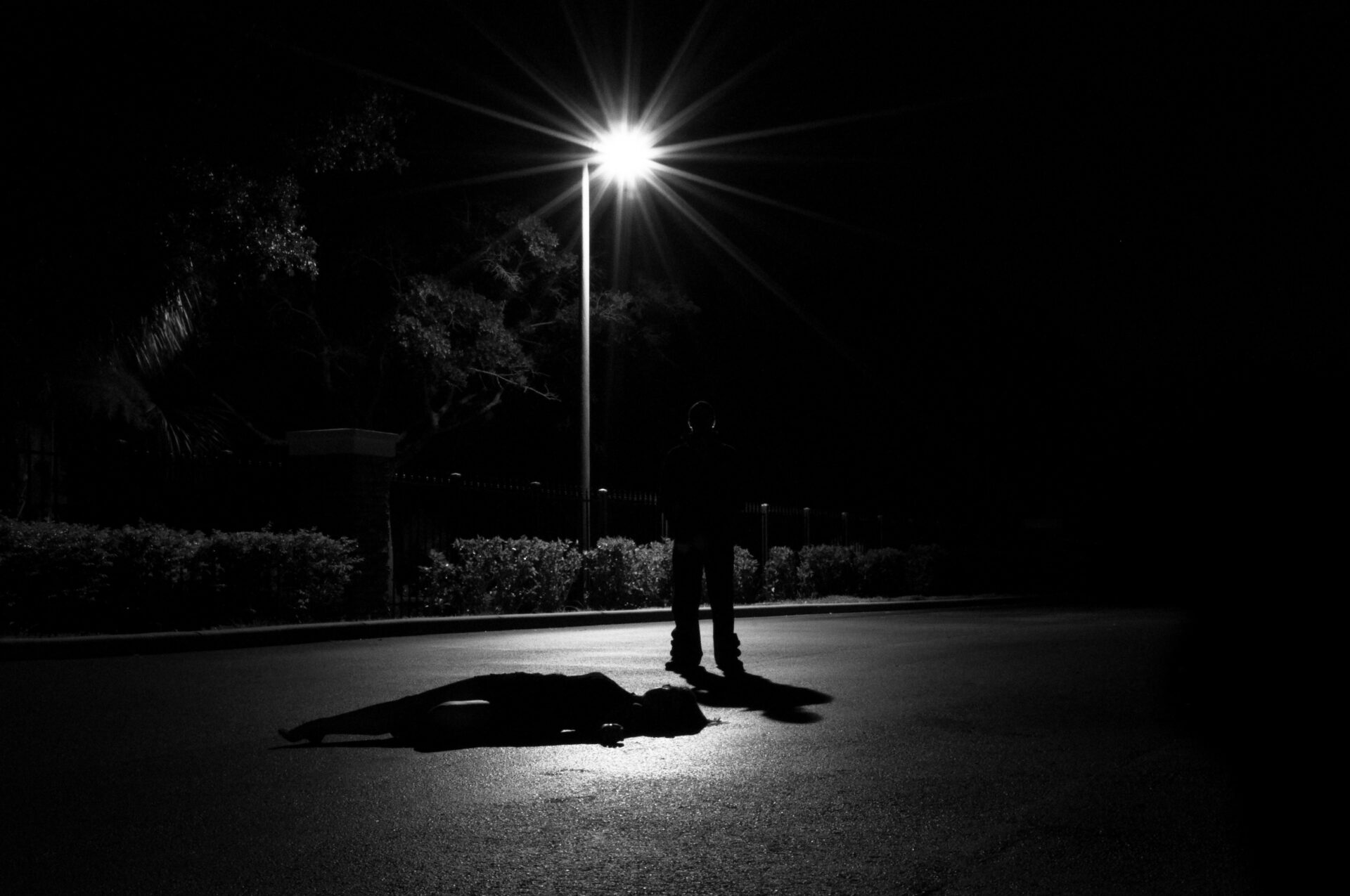“So says science, and I believe in science. But up to now, has science ever troubled to look at the world other than from without?”
– Pierre Teilhard de Chardin, The Phenomenon of Man
Prima facie, Vladimir Putin’s violations against Ukraine constitute “crimes against humanity.” Still, even the most legally correct designations of Russian barbarism in Ukraine fail to communicate the full measure of victim anguish. This is not because of reportorial or linguistic shortcomings. Instead, it owes to an inconspicuous failure, a self-limiting refusal to consider any harms “other than from without.”
All this has consequences. To more meaningfully understand Russia’s crimes against humanity in Ukraine, observers should seek more than the usual quantifiable correlates of injury and fatality. Among other things, victim sufferings in Ukraine scream silently, intangibly, “from within.” In essence, no matter how diligent or well-intentioned the world press may be in covering Putin-inflicted sufferings, the absence of an aptly interior perspective has left observers with only a partial understanding of cumulative harms.
Sigmund Freud already understood this “phenomenological” limitation, even if only in more narrowly therapeutic contexts. He had recognized, in what was simultaneously a primal and visceral observation, that psychological assessments ought never neglect intimate private feelings. Whatever the intrusive limitations of any pertinent investigation or healing enterprise, Freud cautioned the capable therapist (or social scientist) to pay close analytic attention to the human psyche or “soul.”
To be sure, no inherently diaphanous reference to a human “soul” could ever be taken as scientific. One may easily imagine, in this connection, that Freud never expressly considered the application of so specific and unscientific a concept to the measureless flux of world politics, but we could easily imagine that he would have been sympathetic to just such an application. After all, Freud’s understanding of science was never narrowly technical. It was always broad and humanistic.
Promptly, following every barbarous Russian attack on Ukrainians, we learn the number of fatalities and also those allegedly more fortunate victims usually described as “merely wounded.” What observers can’t ever really fathom – and what individual nation-states never seem willing to understand – are the most bewilderingly embedded expressions of personal suffering. Anterior to any learned language or speech, these labored expressions concern what likely happens “inside” the affected person.
Much as others might try to achieve some palpable learning experience of empathic oneness with felt pain of victim Ukrainians, such attempts must inevitably falter. This is because any such experience, ipso facto, would necessarily lie “beyond science.” Scientifically, as Freud would have acknowledged, even determined attempts at feeling weltschmerz (“world pain”) through the suffering of others must ultimately fail.
What should come next for all those who would seek a better understanding of egregious Russian crimes from within? How shall we discrepant and widely-scattered observers discover the interior meanings of war and genocide if there is really no meaningful chance of succeeding? Wouldn’t such concessionary insights merely underscore the immutable limitations of human understanding in time-urgent geopolitical matters?
Let candor prevail. We humans, whether as observers or bystanders or potential healers, can’t ever experience the full impact of aggression and genocide on others. Correspondingly, we ought seriously to inquire, doesn’t this permanent incapacity to put ourselves into the minds and “souls” of Ukrainian victims reveal an irremediable deficit, one with overwhelming policy implications? Might not such a blatant weakness undermine even our most urgently needed anti-Putin strategies?
Although starkly counter-intuitive, the single most important aspect of any Russian attack on Ukrainian civilian populations lies in the inherent privacy or non-transferability of physical pain. No human language, we should finally understand, can accurately describe or feel such pain. It is, inter alia, an “unnamable” pain.
We might, of course, prefer to think of ourselves as decently empathic persons. Still, we humans are fundamentally “hard-shelled” beings, permanently exiled from experiencing the most deeply felt sufferings of others. Always, various critical boundaries between one individual and another must lie beyond our personal capacities to navigate or traverse them. These daunting boundaries, which may actually make human life more tolerable, must remain intimidating, fixed, and impermeable.
The core concept of hard and impenetrable barriers of feeling between individual human beings is key. It merits further analysis. To be sure, everyone who has been born has had to endure physical pain, even when it has seemingly become unendurable. Plausibly, everyone who has been born will concur that bodily anguish can not only defy the banal syntax of ordinary language, it can also be language-destroying.
That’s saying a great deal. The natural inaccessibility of others’ suffering, the relentless privacy of immobilizing human torment, has persistently wide social and political consequences. In the case of recurrent Russian assaults against Ukrainian homes, schools and hospitals, civilian victims, whether by face-to-face murders and bombings or by orchestrated spasms of intentionally indiscriminate artillery attacks, this inaccessibility stands in the way of fully recognizing barbarous military assaults as inexcusable. Sometimes, rather than elicit deservedly universal cries of condemnation, these multiple Russian crimes have brought forth a layered chorus of support from different segments of our self-defiling planet, including a former US president. Typically, upon examination, these “amen” cries are offered by those individual persons and groups who remain subject to coercively-organized conformance and who are most easily bewitched by political banalities and empty credos.
For those who might still seek some evidence of pragmatic rationale in Russian crimes, there is generally little to “uncover.” In part, at least, this is because of certain “operational difficulties” for the aggressors in transforming Ukrainian victim pain into Russian perpetrator power. We now also know, in observing variously different Putin stratagems, that any willful resort to carnage and mayhem can quickly turn counter-productive; that is, it can unwittingly stiffen the resolve of designated victim societies, their component populations and their respective governments.
In the final analysis, much as we observers might wish to deny it, the “suffering distance” between any one person’s own body and the body of another is impossible to cross. Whatever else we may have been taught about empathy and compassion, the deliberately unyielding membranes that separate and insulate our individual bodies from one another will trump any didactic words of instruction concerning “caring.”
For apparently good reasons, we have disregarded Freud’s generically prophetic warning to look out for the soul. This warning remains valid even though surrounding communities of scholars and policy-makers must remain distant from certain deeper and immeasurable human feelings.
In world politics, as in other segments of human affairs, all things move in the midst of death. However unjustified any specific Russian attack on Ukrainian civilian populations may be, the authentic pain of the victims is still kept at a suitably “safe distance” from the “audience.” Never entirely palpable, the true horror of that pain is blunted, at least in part, by the permanently unalterable shortcomings of human language and human empathy.
It follows, though hard to believe, that Russian crimes against humanity are actually much worse and more insidious than they first appear. Whatever their alleged motives – whether stated or unstated, and wherever they might choose to discharge their meticulously crafted torments – these Putin-directed murderers will continuously commit to a choreographed sequence of evils. This means a dance macabre from which there could never be any reasonable hopes for release.
As so often happens in such matters of very great importance, science represents the best method of seeking pertinent conclusions. Nonetheless, even science must generally disregard any vital espirit de finesse (i.e., the most deeply human content of what is being investigated) and even science needs to be augmented by certain complementary views of the Russian-created horror in Ukraine. These necessary views, while inherently more difficult to ascertain or measure, are “other than from without” and are potentially the most revealing of all.


























